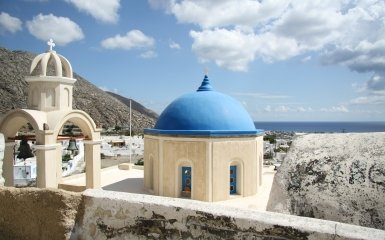Greece has been named Country of the Year by the British magazine The Economist. The journalists believe that the country's authorities have shown that it is possible to implement tough and sensible economic reforms on the verge of collapse and still win elections.
Greece became the country of the year according to The Economist
Greece has topped The Economist's ranking of countries after years of painful restructuring.
The publication writes that the country's centre-right government was re-elected in June. Its foreign policy is pro-American, pro-European, and wary of Russia.
Greece is demonstrating that on the brink of collapse, it is possible to implement tough, sensible economic reforms, restore the social contract, and show restrained patriotism — and still win elections.
Which states could receive the title of country of the year
The Economist writes that since the publication's journalists started choosing countries of the year in 2013, they have tried to choose the country that has improved the most.
The search for a bright spot in a gloomy world drove some of our employees to despair and suggested that we choose Barbieland, the fictional pink utopia from this year's Hollywood blockbuster.
However, according to journalists, there are two groups of countries that deserve recognition this year.
The first group includes countries that have stood up to authoritarian neighbours. Among them are Ukraine, which is standing up to Russia, Moldova, which is fighting against Russian intimidation, and Finland and Sweden, which joined NATO.
The Philippines defended its maritime borders against Chinese ships. In August, Japan and South Korea put aside their historic disputes to deepen cooperation. The island nation of Tuvalu, with a population of 11,000, signed an agreement with Australia that insures its people against climate change and includes security guarantees to prevent an attack from China.
The second group of countries defended democracy or liberal values at home. Among them are Thailand and Turkey, where the opposition persistently tried to overthrow authoritarian regimes, but these regimes survived the elections.
Three countries have returned to moderation after populism. This is Brazil, where the centre-left Luiz Inácio Lula da Silva became president after populist Jair Bolsonaro.
However, the country did not receive the award because of da Silva's excessive affection for dictator Putin and Venezuelan despot Nicolas Maduro.
Poland increased defence spending and continued to accept Ukrainian refugees. In October, voters rejected the populist nationalist Law and Justice party in favour of a number of opposition parties.
More on the topic
- Category
- Economics
- Publication date
- Додати до обраного


